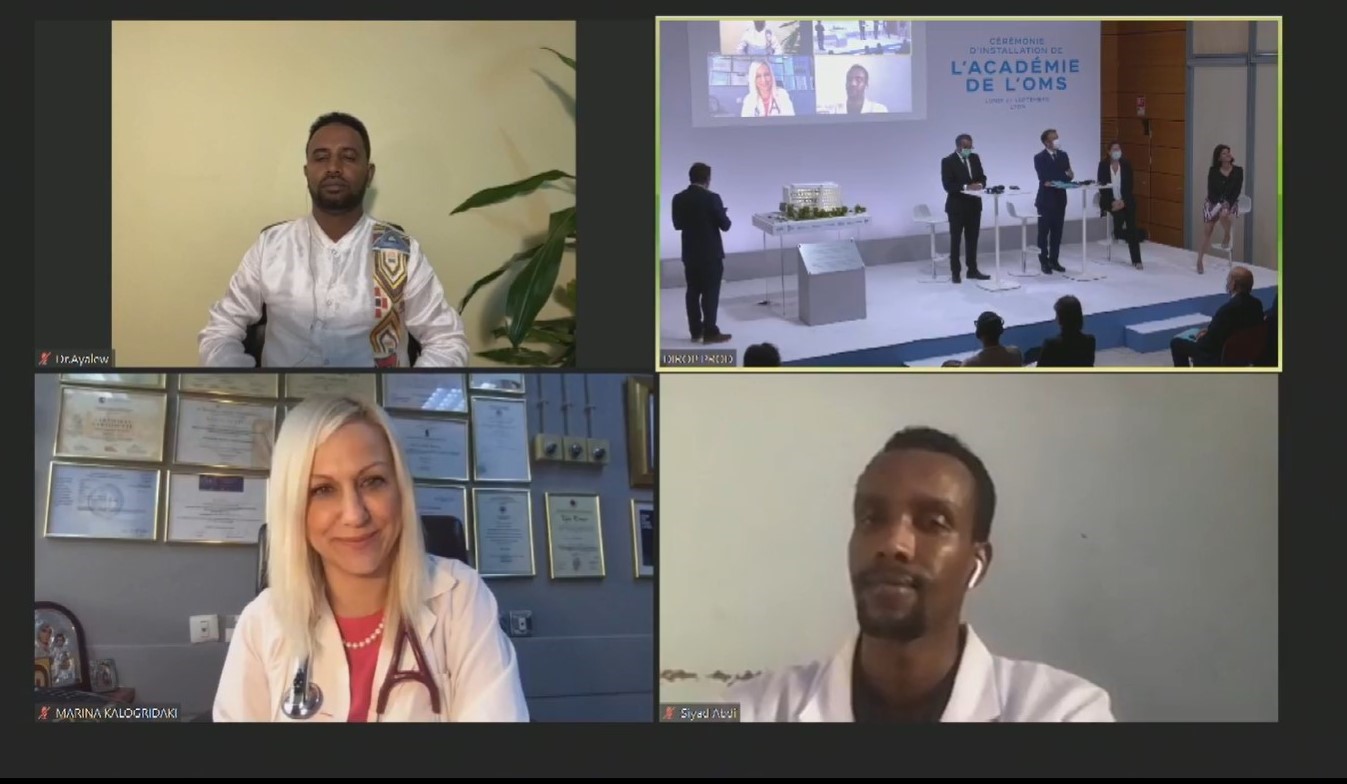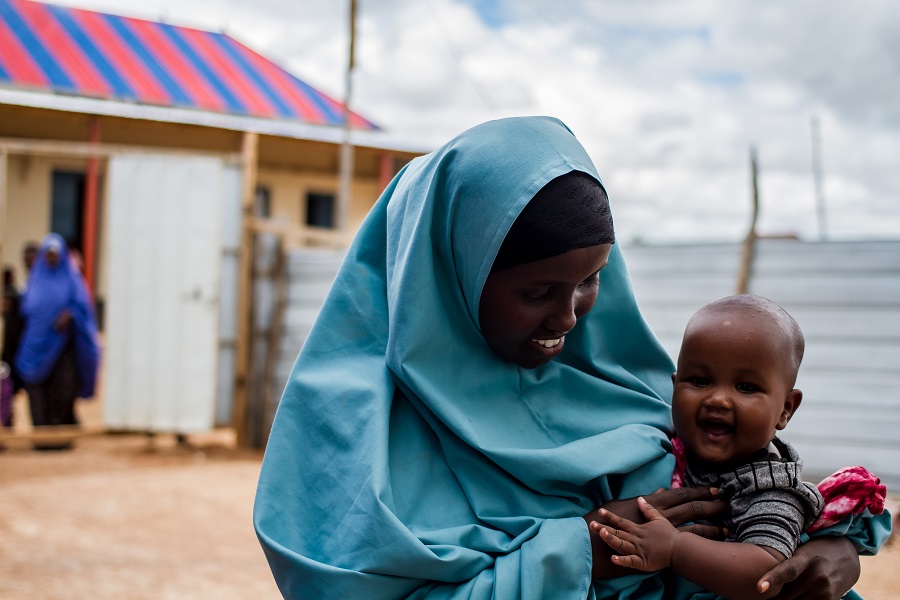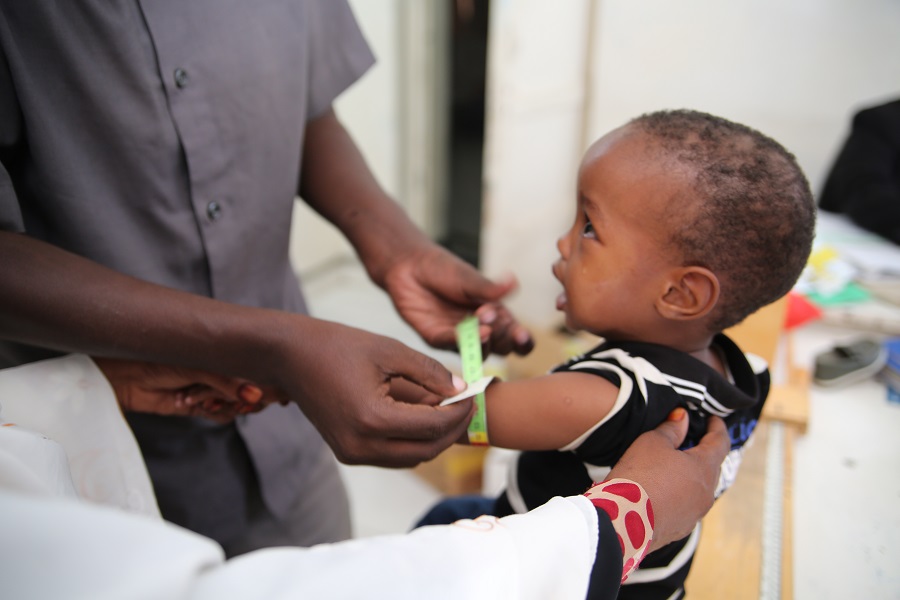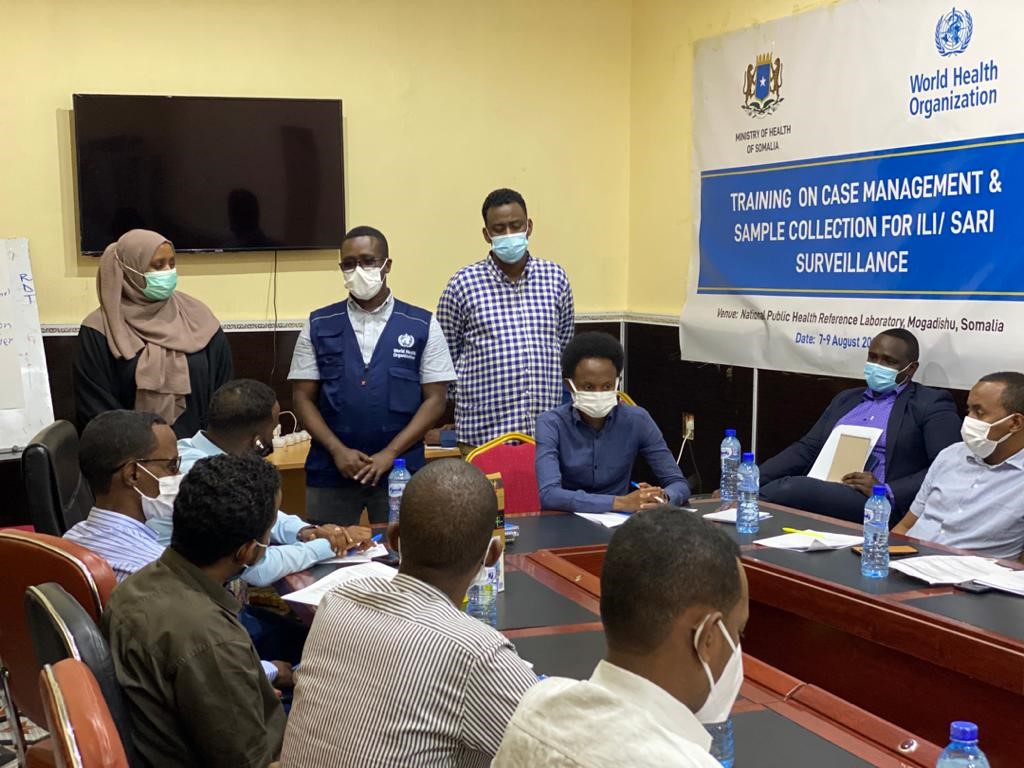29 September 2021 – Three decades after a civil war and several natural and manmade disasters, the resilience of Somali communities and health workers have been put to test many times. Each time the sound of an explosion reverberates across a city or town, under-resourced health facilities scattered sparsely across the country can expect to receive an influx of mass casualties.
At their end, health workers managing these health facilities are usually under-prepared, with limited access to modern tools, equipment and skills, that limit their response and reaction to mass casualties and resulting trauma, which is ubiquitous. A primary assessment conducted by WHO across 142 hospitals in Somalia found that trauma poses a heavy burden on the health system and communities, and that conflict contributes to around half of all civilian cases of trauma.
Introducing modern tools, techniques and thinkings through mass casualty management courses
In 2020, in recognition of the situation and to support hospital teams in mounting a more efficient and effective response to mass casualties, the Federal Ministry of Health and Human Services of Somalia partnered with WHO Somalia, WHO headquarters and the WHO Regional Office for the Eastern Mediterranean, with financial support from the Pandemic Emergency Financing Facility (PEF) of the World Bank.
After a few weeks of planning, the WHO Academy conducted 2 of their very first 5-day mass casualty management courses throughout January and February 2021, where 10 expert trainers from different parts of the world trained 74 Somali doctors and nurses in Mogadishu and Hargeisa. This was the first WHO Academy certified course held in Africa on mass casualty management.
“Although nearly all of the trainees were aware of the concept of a mass casualty plan, few had any experience of one and many had no real idea of what a plan entailed. By the end of the course, the trainees were more familiar with the concept of working in a team and the design and implementation of a mass casualty plan. Most importantly, after 5 days of training, it was possible to see an evolving understanding of underlying concepts and an ease with communicating with colleagues in the language of mass casualty,” said Dr Neil Shorney, Consultant Anaesthetist, WHO Trauma Operational and Advisory Team Expert Adviser, WHO Academy Mass Casualty Management Programme.
Feeling more prepared to deal with mass casualties
As a member of the Somali Medical Association and the Somali Paediatric Association, and currently serving as a paediatric doctor at the SOS Children’s Village in Somalia for the last 8 years, Dr Abdirahman Osman Mohamud knows how important it is for children to receive timely attention. After all, according to the primary assessment that WHO carried out, about a third of all casualties are children aged under 15 years.
At the mass casualty training he attended in Mogadishu, Dr Mohamud learnt how to activate mass casualty management phases, prepare a plan for mass casualties, and work with different zones appropriately, should the health facility ever receive children involved in an incident.
Dr Zainab Abdirahman Ali from South Galkacyo Hospital reiterates the same messages. Before the training, none of the participants had plans to deal with mass casualty incidents, but the training helped health workers and, as a result, medical and non-medical staff, to use triage points to prioritize people’s needs. A practical session, whereby participants had to draw a plan of the hospital and divide it into triage points, also helped them discuss ideas. Dr Zainab feels the training motivated her and other fellow doctors and nurses to save more lives.
In Hargeisa, when he was young, Dr Saddam Hussein Abdi couldn’t understand how so many people he knew fell sick and died within no time. It was and still is a norm. Years later, as a participant in the mass casualty management training being run by the WHO Academy, Dr Hussein explains to facilitators how education is a key ingredient in a health system and will help the new generations of health care workers, like him, to help their communities.
“For now, thanks to WHO and the World Bank, we have had a chance to learn about important topics like dealing with mass casualties and hospital management that will make us more efficient at what we do. I have been one of the lucky ones. But all doctors need opportunities like these and more.”
WHO Academy groundbreaking ceremony
On Monday, 27 September 2021, WHO Director-General, Dr Tedros Adhanom Ghebreyesus, joined H.E. President Emmanuel Macron of the Republic of France, at a groundbreaking ceremony for the WHO Academy in Lyon, France, to inaugurate the construction of its futuristic campus. At the event, President Macron asked a Somali surgeon and WHO Academy certified mass casualty management trainee, Dr Siyad Mohamed Abdi, about his learning experience.
Dr Abdi, who works at a number of hospitals in Galmudug State in Somalia, explained that the training had enabled health professionals to respond better to mass casualties and emergencies, by prioritizing the needs of casualties and allocating resources for such events. He shared an example of how the hospital team was better prepared to deal with the casualties from an explosion after they had acquired skills from the training.
 Photo: Dr Siyad Mohamed Abdi (bottom right) addresses Dr Tedros, President Macron and WHO Academy Executive Director, Dr Agnès Buzyn (top right) during the groundbreaking ceremony, 27 September 2021, while health professionals from other countries listen to the discussion.
Photo: Dr Siyad Mohamed Abdi (bottom right) addresses Dr Tedros, President Macron and WHO Academy Executive Director, Dr Agnès Buzyn (top right) during the groundbreaking ceremony, 27 September 2021, while health professionals from other countries listen to the discussion.
Related links
WHO Academy Groundbreaking Ceremony Expanding Access to Critical Learning
For further details, please contact:
Mr Kyle DeFreitas
WHO Somalia
External Relations Lead/OIC Nairobi Liaison Office
This e-mail address is being protected from spambots. You need JavaScript enabled to view it
Ms Fouzia Bano
WHO Somalia
Chief of Staff ai, Communications Officer
This e-mail address is being protected from spambots. You need JavaScript enabled to view it







 15 September 2021 – Somalia is one of the few countries in WHO Eastern Mediterranean Region without a functioning surveillance system for seasonal influenza. The electronic-based Early Warning Alert and Response Network (EWARN) surveillance system used in Somalia enables health workers, as well as state and national surveillance teams, to conduct real-time surveillance and promptly respond to epidemic-prone diseases. However, the system provided limited information required for epidemiological surveillance and the country lacked the capacity to conduct virological surveillance for seasonal influenza and other common respiratory viruses.
15 September 2021 – Somalia is one of the few countries in WHO Eastern Mediterranean Region without a functioning surveillance system for seasonal influenza. The electronic-based Early Warning Alert and Response Network (EWARN) surveillance system used in Somalia enables health workers, as well as state and national surveillance teams, to conduct real-time surveillance and promptly respond to epidemic-prone diseases. However, the system provided limited information required for epidemiological surveillance and the country lacked the capacity to conduct virological surveillance for seasonal influenza and other common respiratory viruses.